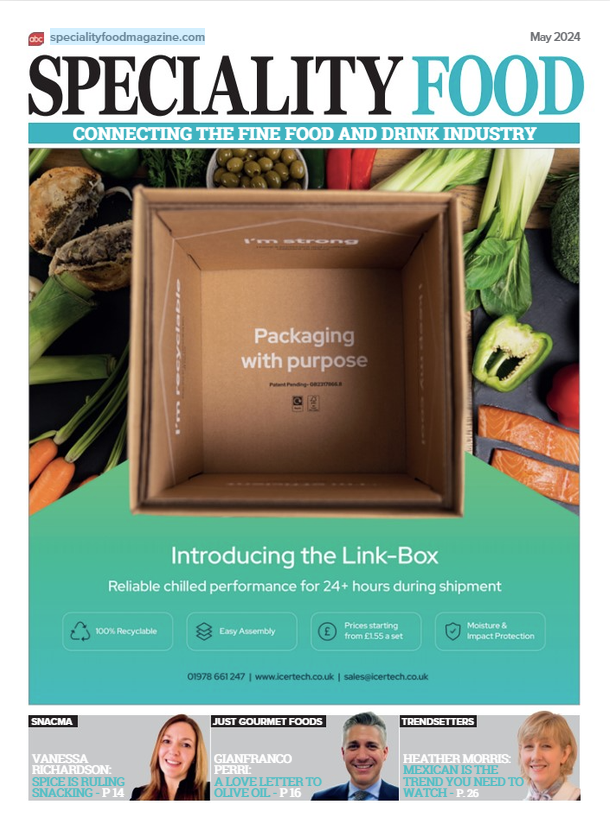“Five things you would NOT have heard at The Convenience Show last week”

- Becoming a B Corp
- Top trend predictions for Christmas 2021
- Self-sacrifice: The importance of building a leadership legacy centred on others
- Undercover Boss
- Can/should bosses really be close friends with their staff?
In spending some time at both shows last week, it was interesting to compare the two sectors. In my view, it is time for the speciality food sector to stop being an immature teenager and to grow into an adult. There are too many companies, both producers/suppliers and retailers, who act on a whim or do things because they have always done them. Many of these do not make long-term commercial sense.
Here are a few things that you would have heard at the Farm Shop and Deli Show last week that certainly would not have been heard at The Forecourt or The National Convenience Show:
1. Retailer (to a producer):“I know you are listed with a wholesaler I deal with, but I would rather buy direct.”
Retailers who enlarge their supplier base to a ridiculous level in some cases are not sustainable. It is not viable for a retailer to have 150 direct deliveries into their stores and maintain good staff efficiency. Convenience store owners would never buy products that aren’t listed with a wholesaler they already deal with.
2. Retailer (to a wholesaler): “I find your minimum order quantity of £300 too high. I deal with a wholesaler that only has an MOQ of £100.”
The whole point of wholesaling is consolidation. Convenience stores are placing much larger orders than this with their wholesalers every week of the year. Wholesalers who have tiny MOQs are not facilitating consolidation, and are either supplying retailers who aren’t profitable or ones that are still buying the majority of their products direct. Consolidation for profitable retailers is the only efficient way of doing business.
3. Sales Agent (to a retailer): “We have several brands that we can sell to you, but they will all be delivered to your store direct from the producer.”
This again breeds inefficiency. Multi-deliveries coming in multiple times an hour takes staff off the shop floor where they can be selling to their customers. If this is such a great model, why do the profitable large retailers not do it?
4. Wholesaler (to a producer): “I noticed that our customers can almost buy your products at Waitrose cheaper than they can buy them from us.”
It is a perfectly viable to supply supermarkets, but if you want to maintain good business with the independents through a wholesaler, you will have to sell to the wholesaler significantly less than you supply Waitrose, the retailer. Some producers understand this: I saw some Peter’s Yard products in Waitrose yesterday retailing at a price at which, if an independent bought from us would make them a healthy 37% margin. Sadly some producers are making their wholesalers look silly by not having a proper pricing structure.
5. Retailer (to a producer): “My wholesaler dropped that product out of your range, please can you supply me with it direct.”
I can’t speak for other wholesalers, but Cotswold Fayre drops at least 20% of its worst performing lines each year, so if products come out of our range, it is because they are not performing. Why would you, as a retailer, want to stock dust-gatherers?!
6. Retailer (to a wholesaler): “We don’t pass on promotions to our customers, we keep the extra margin ourselves.”
Remember, you want to encourage your consumers to spend more money with you. Having promotions encourages them to do that and keep coming in for more.
I could go on, but I think you understand where I am coming from. There is a growing need for more efficiency and commercialism in the sector. Retailers simply can’t buy products on a whim, they need to be assured that those products are going to be marketed and justify their space in the shop by good turnover. (Incidentally, good wholesalers check out prospective suppliers’ marketing budget before we launch!)
In addition to internal efficiency, this sector must start to think more about environmental issues. It simply isn’t good for the planet to have small white vans running all over the countryside making tiny deliveries to retailers. Consolidation is proved to be up to six times better for the environment. We simply should not continue to ignore this, but more on that another time.
more from Speciality Bites
-
Generosity
05 July 2021 Speciality BitesGenerosity from leaders makes business better in all aspects, yet few businesses have discovered the benefits that accompany being generous of spirit. -
We are now retailers too!
21 June 2021 Speciality BitesSo, the week has arrived at last when I become a retailer as well as a wholesaler. What a journey it has been. -
We need leaders, not managers
07 June 2021 Speciality BitesI’ve mentioned before that not many people can give me the name of someone when asked at interview who has inspired them most from their previous work life. This is because most people have only experienced management not leadership.



